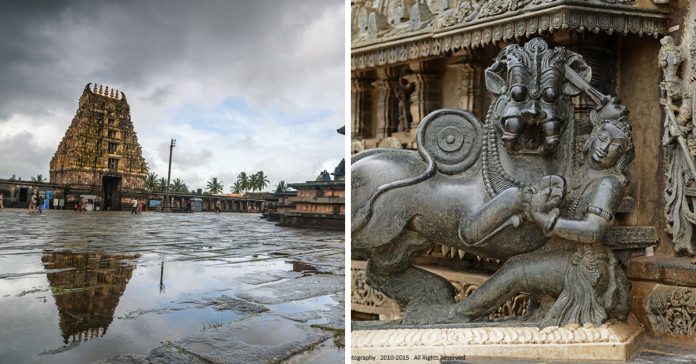
Karnataka’s Hassan district has some of the oldest temples that are nothing short of architectural wonders. Belur is one such place in Karnataka that offers one of the grandest examples of the Hoysala architecture, the Chennakesava or Belur Chennakeshava temple. According to historical evidence, Vishuvardhana, the Hoysala ruler in the early 12th century built the temple. At that time, Belur was the capital city of the Hoysala kingdom.
Even today people from all over the country come to the Belur Chennakeshava temple because to admire the intricate and complex depiction of art and sculpture entwined with old-world spiritual charm.
Perfectly Carved Elephants At Entrance
One can see two perfectly carved elephants stand on either side of the entrance because of architectural style. Small shrines are also present at the entrance along with a stepwell or pushkarni just placed near the entrance. In the days of the Hoysalas, people used to conduct various temple rituals and take a holy bath here.

42m High Lamp Post of Belur Chennakeshava Temple
In the middle of the courtyard of the temple lies a 42m high lamp post or a pillar standing on a star-shaped construction. The intriguing thing about this pillar is that it stands on its own without any foundation and is called as gravity pillar.
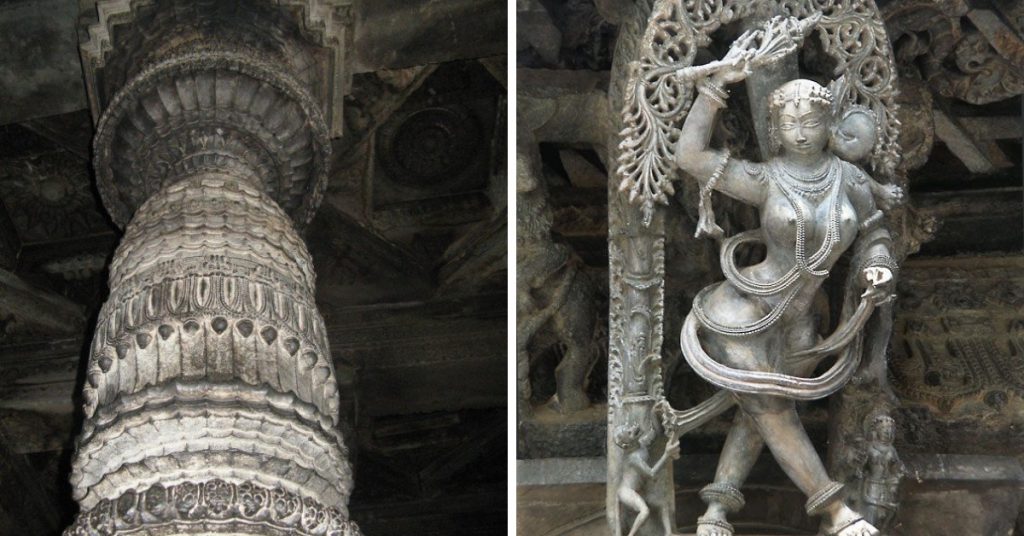
Prominence Of Star Shape
Star shaped design is admiring because it represents the Hoysala architecture. The Belur Chennakeshava temple also showcases this legacy further as the entire temple is built in a star-shaped manner.
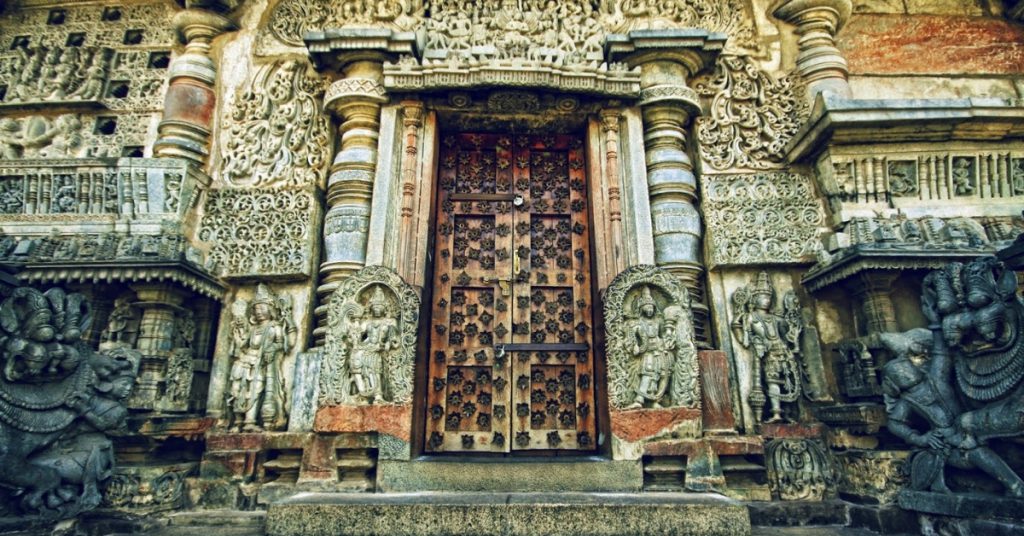
Carvings Of Animals On Outer Walls
The outer walls of the temple have rows of carvings of animals and dancing damsels. They also depict scenes from Mahabharata and Ramayana. Elephants, lions, and horses dominate the animal carvings because it symbolizes strength, courage, and speed respectively.
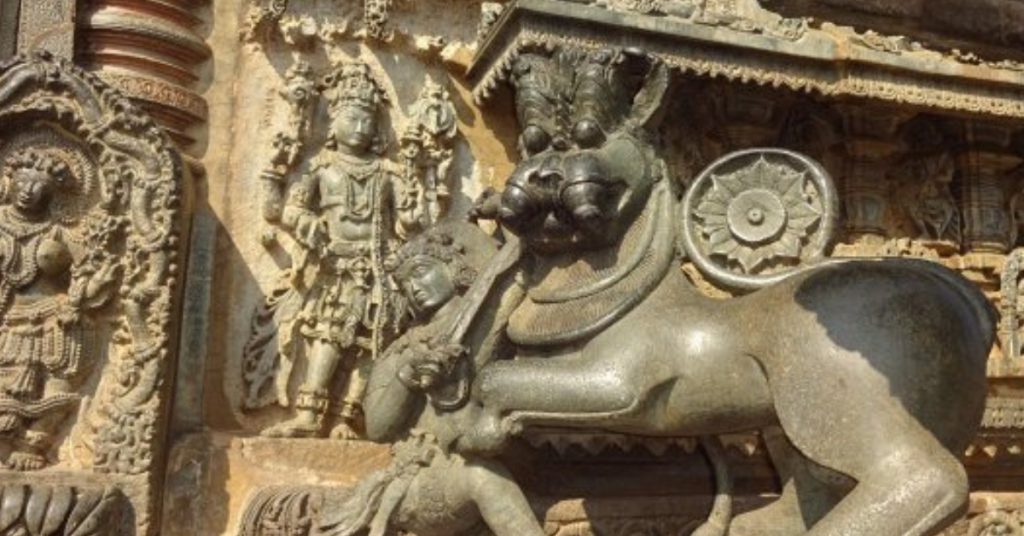
Several Miniature Shrines
There are several miniature shrines located near the entrance of the Belur Chennakeshava temple. According to popular sayings, these intricately carved shrines are the mini-form of actual temple.
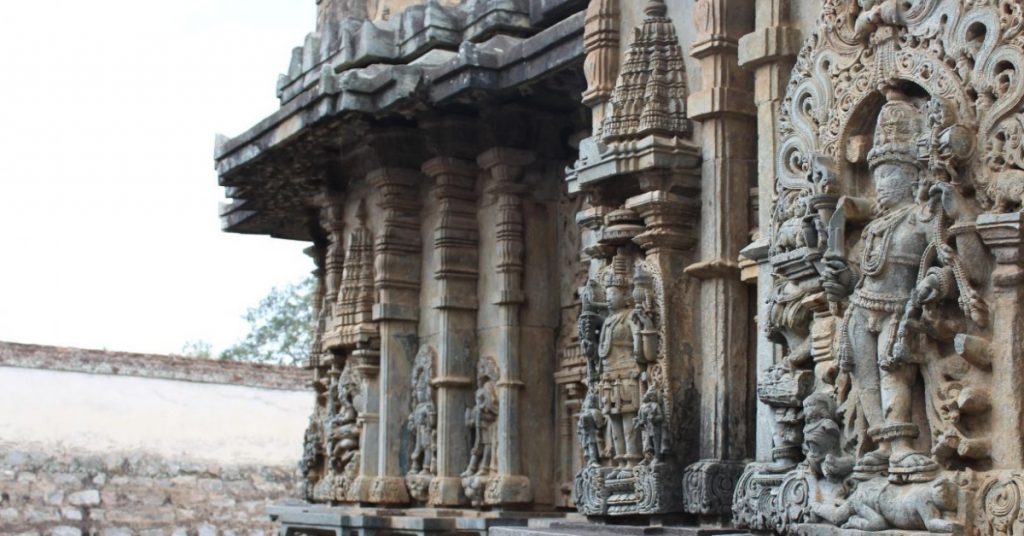
Entrances Decorated With Art Pieces
The various entrances of the temple have decorations in the form of horizontal art pieces. Incidentally, each entrance has a different decoration. The most famous of all is the Lord Vishnu as Narasimha.
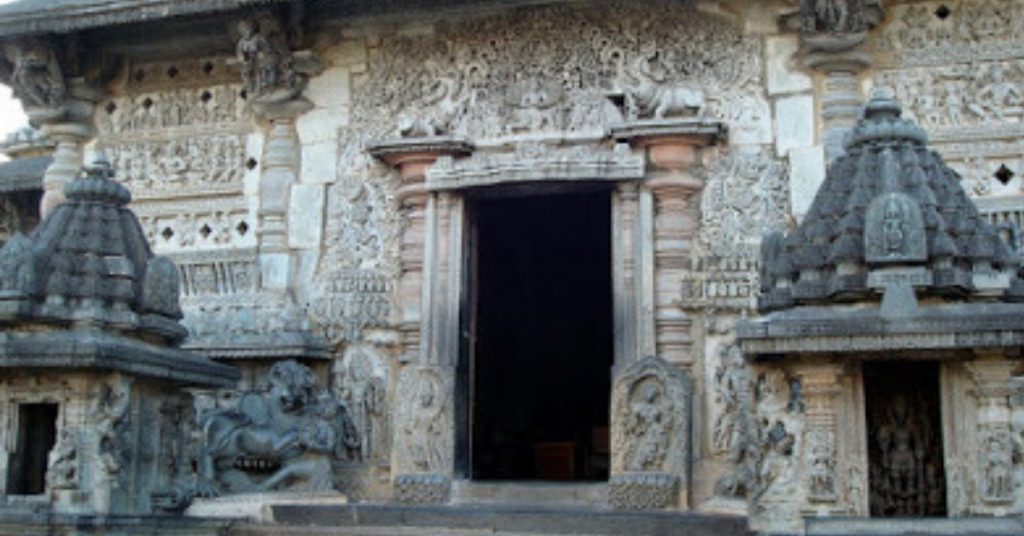
Crest Of Hoysala
The crest of Hoysala at the Belur Chennakeshava temple is a major attraction because of multple reasons. Hoy means to strike and sala indicate forefathers of the dynasty. The story says that one of the ancestors of Hoysala dynasty saved a saint from Lion’s strike.
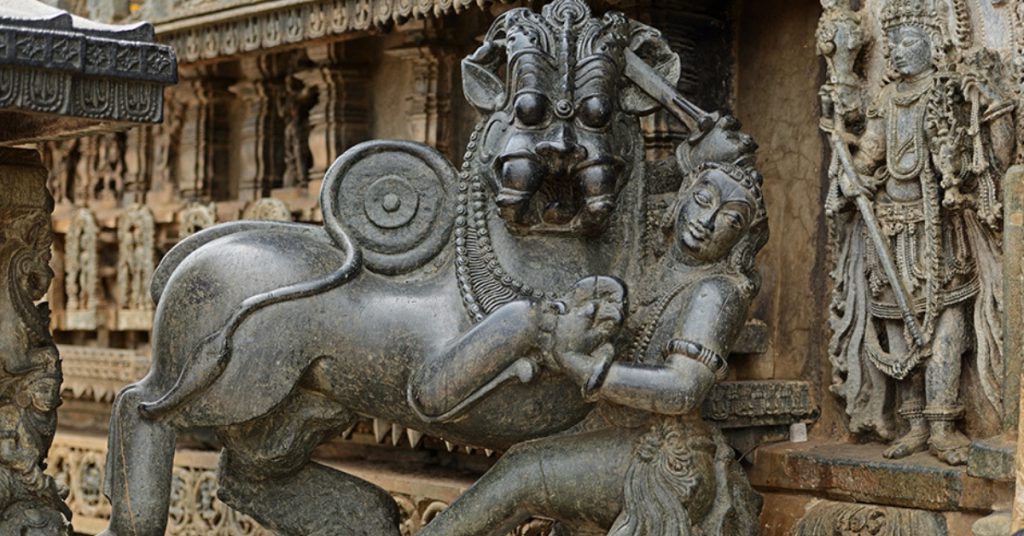
Dancing Nymphs On Walls
The dancing nymphs on walls are carved on many walls of the temple. The Madanaikas is magnificient because it is said to be inspired from the looks of the wife of King Vishnuvardhana, Queen Shantala. Darpan Sundari is the most popular of all the dancing nymphs.
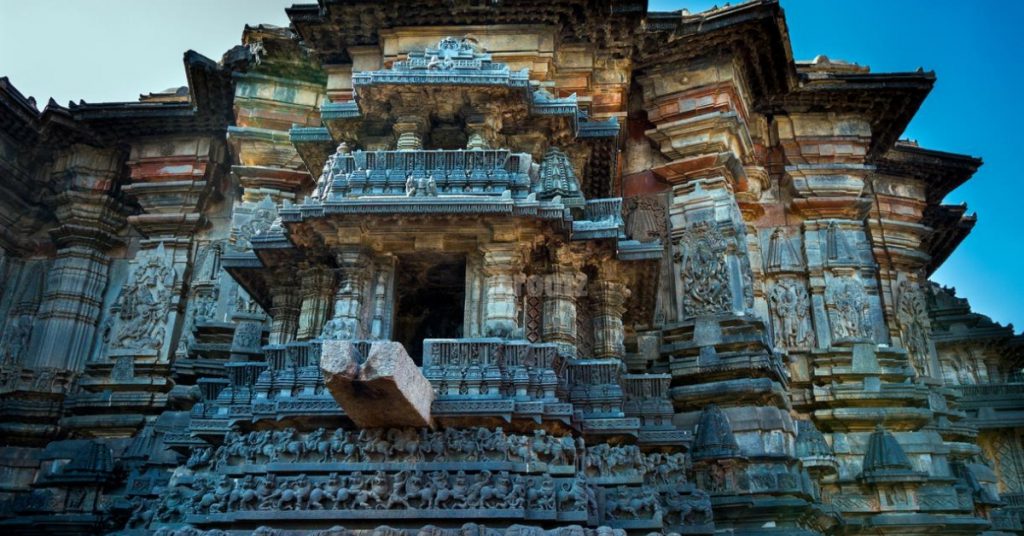
Ornate Ceiling
The inside of the temple is quite dark because of obvious reasons. However, you can still see the ornate center of the ceiling in the flickering light that comes through the door of the shrine. The ceiling has a prominent figure of Narasimha or Vishnu in its center.
Also, Read: 10 Interesting Things About Sringeri Sharadamba Temple – Built in 8th Century
Statue Of Mohini
Mohini is the female Avatar of Lord Vishnu. The fine details of Mohini’s statue and the glistening black stone makes it stand out among the rest of the architecture.
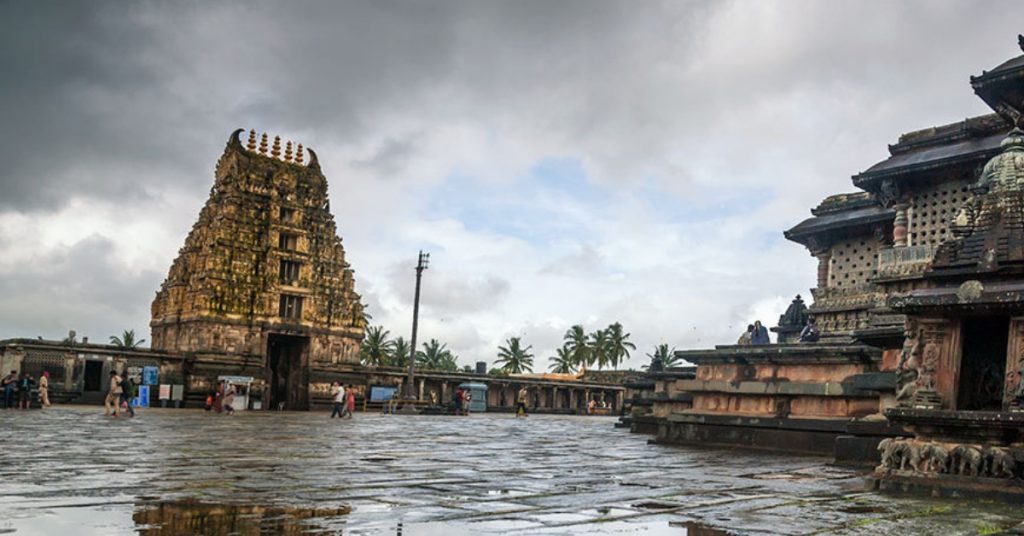
Make time for Belur. You’ll love it for sure.
If You don’t want to miss our next Post then Like and Follow MetroSaga on Facebook and Instagram or simply download our Android App
You can also Subscribe to MetroSaga for newsletters.


































